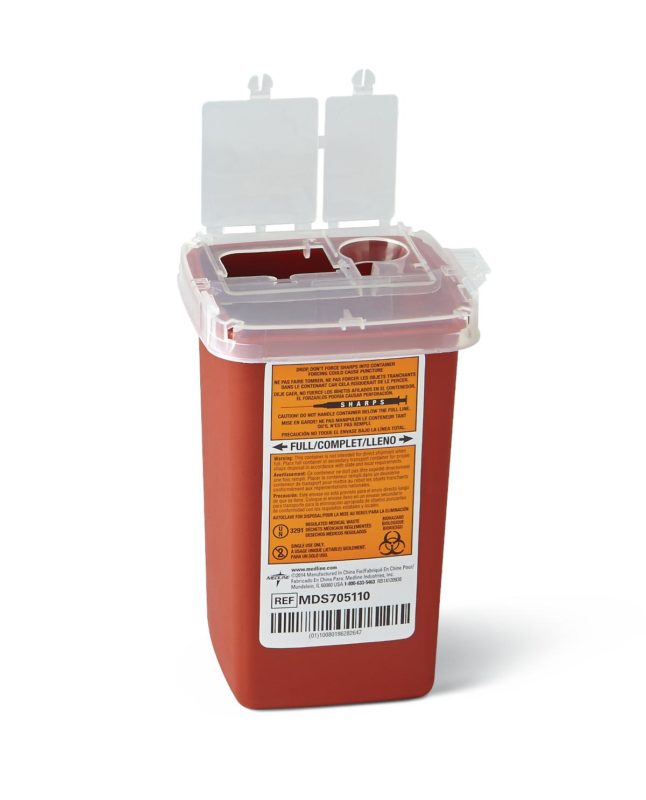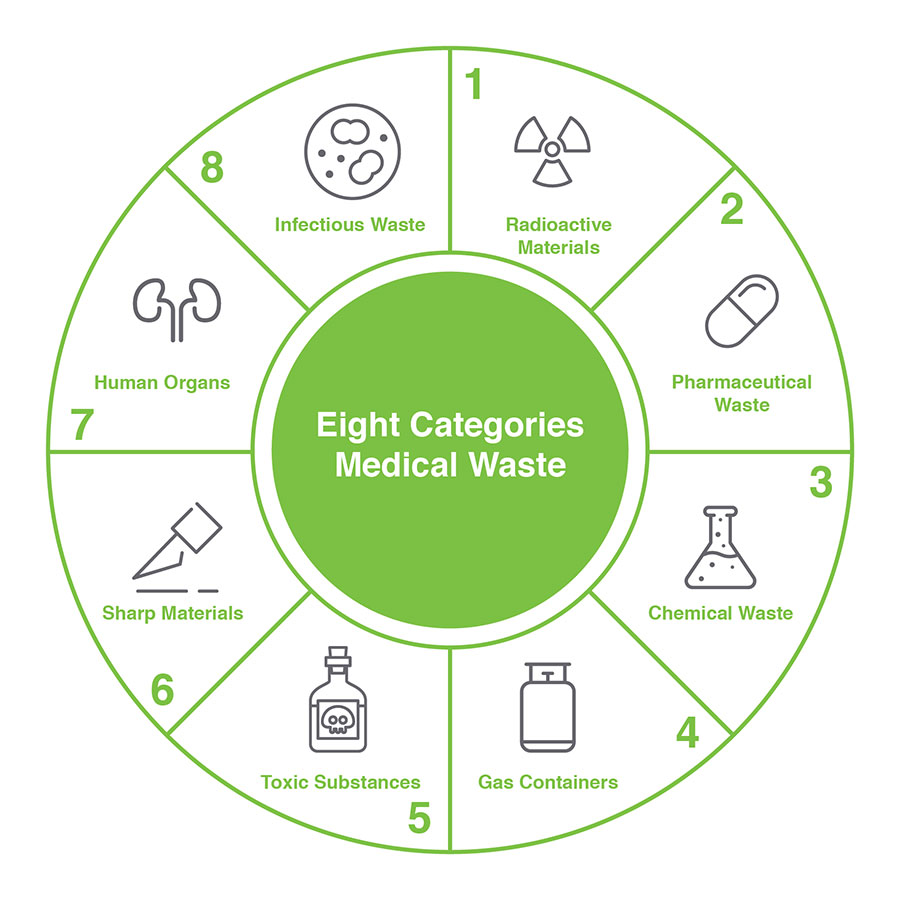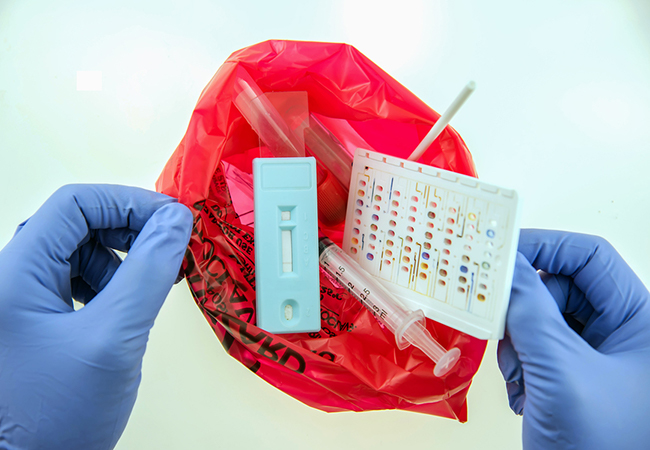Your Relied On Companion: Medical Waste Removal Services Tailored to Your Demands
Your Relied On Companion: Medical Waste Removal Services Tailored to Your Demands
Blog Article
Keep Ahead of Laws: Expert Advice on Medical Garbage Disposal
In a globe where the medical care sector is constantly developing, it is critical for medical facilities to stay ahead of laws when it involves the appropriate disposal of medical waste. With strict guidelines and regular regulative modifications, it can be challenging to navigate the intricacies of this procedure. With professional advice, centers can make certain compliance and reduce threats associated with improper waste disposal. From comprehending the various categories of medical waste to applying the ideal collection and segregation methods, this conversation will certainly provide workable pointers and useful understandings to assist facilities stay ahead of policies in the ever-changing landscape of clinical garbage disposal.
Recognizing Medical Waste Categories
Recognizing clinical waste groups is essential for proper disposal and management in healthcare facilities. Medical waste describes any waste generated by healthcare activities that might present a hazard to public health and wellness or the environment. It is vital to categorize clinical waste precisely to guarantee its risk-free handling, disposal, transport, and therapy.
There are several categories of clinical waste that healthcare centers need to be accustomed to. The most usual groups consist of infectious waste, pathological waste, sharps waste, pharmaceutical waste, and chemical waste. Each category has certain guidelines and policies for its correct management and disposal.
Transmittable waste includes materials infected with blood or various other bodily liquids, such as gloves, gowns, and research laboratory cultures. Pathological waste describes human tissues, organs, or body components that call for special delivery and disposal. Sharps waste includes used needles, syringes, and various other sharp items that can cause injury and send infections. Pharmaceutical waste comprises run out, unused, or infected medicines that need careful handling and disposal. Finally, chemical waste includes solvents, anti-bacterials, and other chemical substances used in health care facilities.
Staying Up-To-Date With Regulatory Adjustments
Staying present with governing adjustments is crucial for medical care facilities to ensure conformity and proper administration of clinical garbage disposal. medical waste removal service. With guidelines frequently developing, it is necessary for medical care facilities to stay updated to avoid fines, fines, and possible harm to the setting and public health and wellness
To stay ahead of governing adjustments, health care facilities ought to establish a system for surveillance and tracking updates. This can be done by signing up for regulative newsletters, participating in conferences and workshops, and proactively getting involved in market associations. Furthermore, facilities must mark a personnel or team liable for staying notified and disseminating info to relevant stakeholders.
Routine communication with regulative firms is likewise essential. Medical care centers should establish partnerships with local, state, and federal firms to guarantee they are aware of any modifications in guidelines that might affect their waste administration practices. This can be done via routine conferences, engagement in public remark periods, and aggressive engagement with governing firms.
Moreover, health care facilities ought to take into consideration partnering with waste administration companies that concentrate on medical garbage disposal (medical waste disposal services with WasteX). These companies are typically skilled in the latest laws and can provide support and support to guarantee conformity
Executing Correct Collection and Segregation Methods
To successfully take care of medical waste disposal, health care centers must establish proper collection and partition techniques based on regulatory guidelines. Executing these techniques makes sure the safe handling and disposal of potentially dangerous products, safeguards the setting, and decreases the risk of infections and injuries to medical care employees and the basic public.
Appropriate collection and partition methods entail making use of assigned containers and classifying systems. Healthcare facilities should offer clearly classified containers for various kinds of clinical waste, such as sharps, infectious waste, pharmaceutical waste, and non-hazardous waste. These containers must be color-coded and clearly significant to stay clear of confusion and advertise easy identification.
Additionally, medical care centers need to train their personnel on the correct treatments for accumulating and setting apart medical waste. This consists of enlightening them on the various types of waste, the proper containers to utilize, and the importance of complying with guidelines and guidelines. Routine training sessions and refresher training courses should be performed to guarantee that personnel Homepage continue to be up-to-date on ideal practices.
Additionally, medical care centers must establish a system for normal collection and disposal of medical waste. This might entail partnering with licensed waste administration business that focus on clinical garbage disposal. These business will ensure that the accumulated waste is delivered and taken care of in compliance with regulative demands.
Picking the Right Disposal Approaches

Incineration is among the most efficient and common approaches for disposing of certain kinds of medical waste, such as pathological waste and sharps. It involves the controlled burning of waste at high temperature levels, reducing it to ash. Incineration can release unsafe toxins right into the air and contribute to air contamination.

Chemical therapy includes the usage of chemicals to reduce the effects of the waste and disinfect. Microwave treatment makes use of microwave power to warmth and sanitize the waste.
Making Certain Compliance Via Documentation and Training
After meticulously thinking about the appropriate disposal methods for clinical waste, medical care centers need to make sure compliance with policies and minimize ecological influence by applying efficient documents and training procedures. This step is essential in keeping a lasting and risk-free setting for both medical care workers and the general public.

Health care employees that manage medical waste ought to get ideal training on waste segregation, taking care of, and disposal procedures. By giving thorough training, health care facilities can encourage their staff to make informed decisions and lessen the threat of improper waste disposal.
Final Thought
Finally, remaining ahead of laws in medical waste disposal is critical for medical care centers. medical waste removal. Understanding the different groups of medical waste, remaining updated with governing modifications, applying appropriate collection and segregation techniques, picking the appropriate disposal methods, and making sure compliance with paperwork and training are all important steps. By complying with these standards, health care companies can efficiently dispose and manage of medical waste in a liable and safe way
From comprehending the various classifications of medical waste to applying the appropriate collection and partition approaches, this conversation will certainly supply actionable pointers and important understandings to help centers remain ahead of laws in the ever-changing landscape of medical waste disposal. - medical waste disposal services with WasteX
The most typical classifications consist of transmittable waste, pathological waste, sharps waste, pharmaceutical waste, and chemical waste. Medical care facilities should offer clearly identified containers for various kinds of clinical waste, such as sharps, transmittable waste, pharmaceutical waste, and non-hazardous waste. Medical care centers need to develop a comprehensive system to record and track all her comment is here aspects of medical waste disposal, consisting of kinds of waste produced, quantities, and disposal techniques utilized. Health care employees who manage medical waste ought to get proper training on waste partition, managing, and disposal treatments.
Report this page